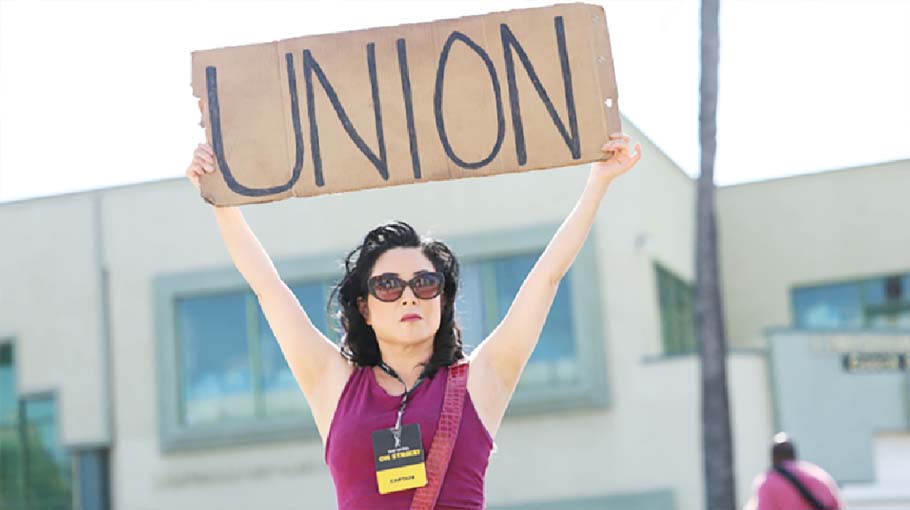Hollywood actors ratify new contract deal to formally end strike

Hollywood actors overwhelmingly ratified a new, hard-fought deal with studios on Tuesday that paves the way for a rebound of an entertainment industry that had seen film and television production come to a halt during a months-long strike.
The Screen Actors Guild, known as SAG-AFTRA, said 78 percent of members who voted approved the multiyear contract.
"This is a golden age for SAG-AFTRA, and our union has never been more powerful," union president Fran Drescher said in a statement.
The deal includes more than $1 billion in new compensation and benefits as well as protections for actors from the use of artificial intelligence by studios, the union said.
The Alliance of Motion Picture and Television Producers (AMPTP), which represents Netflix Inc., Walt Disney and other studios, hailed the union contract ratification.
"With this vote, the industry and the jobs it supports will be able to return in full force," the AMPTP said in a statement.
Voting ended at 5:00 pm on the US West Coast (0100 Wednesday GMT), with a simple majority of members required to finally seal the agreement.
The union said 38 percent of its members cast votes.
The tentative deal between SAG-AFTRA and Hollywood studios to end the actors' 118-day strike was agreed last month, and actors had gone back to work before the ratification vote.
The proposed contract contained higher pay, better bonuses for starring in hit shows or films, and the first-ever protections against the use of artificial intelligence to replace human actors.
It was ratified by the union's leadership two days later, though not unanimously.
Union leaders have since held meetings and sent out emails and social media posts to members, strongly urging them to approve the deal.
"Today is the day," said SAG-AFTRA chief negotiator Duncan Crabtree-Ireland, before the release of the voting results.
"This is a big $1 billion deal with a lot of really important gains in areas like AI, minimums, streaming money," he said. "It's a deal that I'm really proud of."
Shortcomings?
The vote outcome was not assured, and as details of the agreement emerged in recent weeks, warnings began to circulate online about its shortcomings, particularly over the issue of AI.
Performers feared they could soon be replaced by entirely synthetic "actors," generated by AI using the body parts of many different humans, whose likenesses have been scraped from film archives.
The deal does not prevent studios from using generative AI, but it has a clause requiring them to inform the union each time the technology is used.
SAG-AFTRA would then have the right to bargain for compensation on behalf of the actors involved -- though critics say it would be hard to identify who they are.
Actors also say that the massive number of viewers a show or film needs to attract to trigger bonuses for its performers is too high for all but the very top echelon of hit shows.




